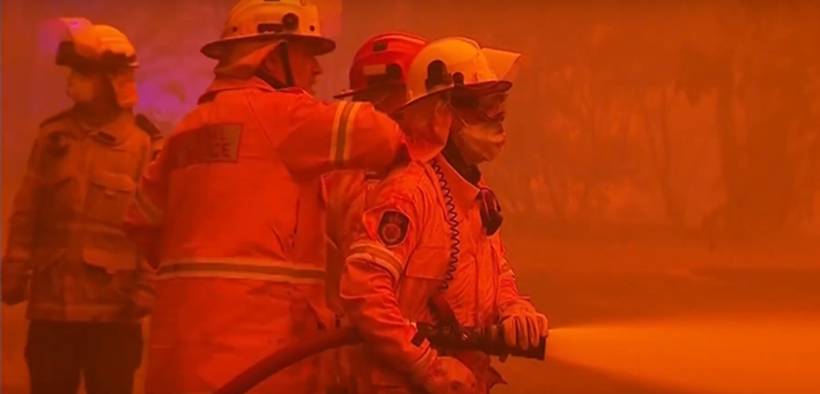Extreme Weather Could Spark Economic Recession ‘Likes of Which We’ve Never Seen Before,’ Research Warns

“Unpriced risk was the main cause of the Great Recession in 2007-2008.”
(By: Jake Johnson, Common Dreams) New research published Monday warns that extreme weather driven by the climate crisis could bring about an economic recession “the likes of which we’ve never seen before” if markets don’t do a better job assessing climate risks.
Paul Griffin, an accounting professor at the University of California, Davis Graduate School of Management, wrote in a paper for Nature Energy that financial markets have not sufficiently accounted for the major economic risks posed by the global climate crisis, even as extreme weather—from destructive hurricanes to prolonged drought—wreaks havoc across the globe.
“Unpriced risk was the main cause of the Great Recession in 2007-2008,” Griffin wrote. “Right now, energy companies shoulder much of that risk. The market needs to better assess risk, and factor a risk of extreme weather into securities prices… Without better knowledge of this risk, the average energy investor can only hope that the next extreme event will not trigger a sudden correction to the market values of energy firms.”
Griffin continued:
This past summer, the United States and Europe experienced record-breaking heat. Now linked reliably to climate change, excessive high temperature is among the deadliest of weather extremes. Not only can it disrupt agriculture, harm human health, and stunt economic growth, it can also overwhelm—and temporarily shut down—large parts of a state’s or a nation’s energy system, as in the case of the Pacific Gas and Electric Company (PG&E) in California.
Extreme heat events can create uncertain and longer duration power outages, threaten critical infrastructure, exacerbate energy supply and demand imbalances, and trigger significant legal liability for energy firms. Newer reports of an increase in the frequency and severity of extreme weather events, moreover, amplify those risks for energy firms.
Despite these obvious risks, investors and asset managers have been conspicuously slow to connect physical climate risk from extreme weather events to company market valuations.
Griffin is not the first financial expert to raise alarm about the potentially calamitous economic impacts of the climate crisis—which would come in addition to the emergency’s incalculable effects on humans, animals, plants, insects, and the planet as a whole.
The Switzerland-based Bank for International Settlements warned in a 115-page report (pdf) last month that the “increase in the frequency and intensity of extreme weather events could trigger non-linear and irreversible financial losses.”
“Climate change poses unprecedented challenges to human societies,” the report stated, “and our community of central banks and supervisors cannot consider itself immune to the risks ahead of us.”















